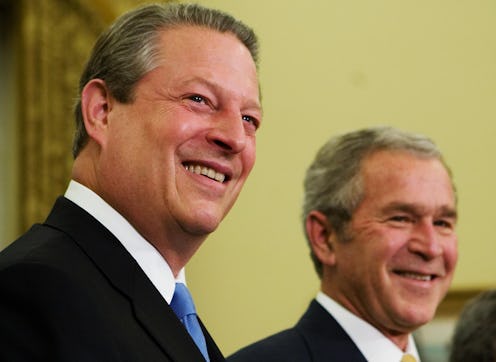News
The Popular Vote-Electoral Vote Divide
When it comes to voting in the U.S. presidential election, the fact is that in the current electoral system, votes boil down to two categories: the electoral vote and the popular vote, and they don't count equally. The electoral vote, handed down by the electors chosen by each state to be representatives in the Electoral College, is the one that ultimately decides who the next president will be. So, why doesn't the popular vote elect the president?
The Electoral College system makes sense when you consider the historical context. When the founding fathers were deciding how votes would go down as they constructed the never-before-imagined boundaries of the ground-breaking democratic system, they had to make some strategic decisions about exactly how much weight would go to individuals in the fledgling nation. One decision they made was to gather popular votes and funnel the tally of those votes through the Electoral College when it came time to elect a president. Since the founding fathers weren't so sure exactly how this whole thing would go and wanted to maintain control of a proverbial emergency break should the situation be deemed necessary.
While it's certainly not accurate to say the individual vote doesn't matter (and you definitely should vote), it is curbed by the Electoral College. That's why many modern scholars think the current system is in serious need of reform. Stanford University, Jack Rakove, for example, stated ways America could fix the potential problems caused by the founding fathers' Electoral College set-up:
This problem would disappear if we had a truly national election with one electorate and votes counting the same wherever they were cast. Then the candidates would have to think more creatively about how to mobilize a national electorate, rather than pouring money into the televised advertisements that must drive voters in the battleground states completely bonkers. The parties would have the incentive to attract voters throughout the country, which is now a matter of complete indifference to them.
So far, in United States history, the electoral vote has not reflected the popular vote results four times, which is almost 10 percent of the time. From my perspective, those aren't good enough odds for a system tasked with choosing the leader of the free world.
Image: Bustle
